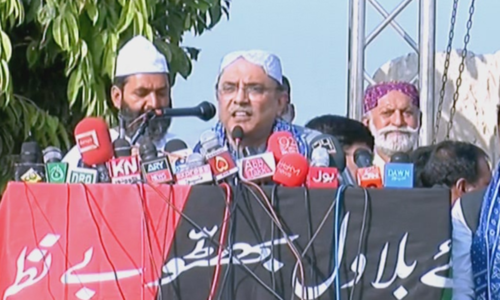IT may be a legal instrument, but its overuse, or use in circumstances other than a genuine emergency, amounts to a subversion of the core legislative duty of parliament.
Prime Minister Imran Khan’s suggestion that the PTI-led federal government may opt for presidential ordinances to push through the government’s legislative and reforms agenda is a statement of intent that ought to be reconsidered.
The parliamentary maths is clear: the PTI and its allies can muster a majority in the National Assembly, but are significantly short of one in the Senate.
The numbers in the upper house are likely to shift somewhat in favour of the ruling coalition in the next Senate election; however, those elections are not scheduled for another two and a half years, in 2021, by which time the PTI government would be halfway through its term.
But that is not a justification for the PTI to turn to the presidential-ordinance route to legislate, bypassing parliament. What is also unclear is how the PTI government intends to introduce durable legal reforms via presidential ordinances.
The ability of governments to use presidential ordinances to circumvent parliament has been curtailed, and after the 18th Amendment the lifespan of an ordinance can be no more than two 120-day periods, the second 120 days requiring approval by one of the houses of parliament.
The range of issues mentioned by Prime Minister Khan — from the early disposal of cases to strengthening the inheritance rights of women and widows — will require durable legislative fixes rather than ad hoc and time-bound interventions, which is what presidential ordinances are.
Perplexing, too, is the justification that Mr Khan gave for wanting to use ordinances to legislate.
The PTI cannot legislate with the main opposition parties because to do so would mean condoning their corruption, according to Mr Khan.
What is unclear is why legislation drafted and presented in parliament by the government itself would be tainted merely because other political parties choose to support it. Mr Khan appears to have a remarkably myopic, even faulty, understanding of the current parliament.
Perhaps most troubling are the implications of Mr Khan’s statements for the functioning of parliament. Already parliament has been effectively paralysed by a dispute between the government and the opposition regarding the chairmanship of the Public Accounts Committee.
That dispute has prevented the National Assembly speaker from notifying the committees that do much of the core parliamentary work.
Mr Khan’s assertion that his government will seek to legislatively bypass parliament could inflame tensions in the house and reduce the opposition’s incentive to work with the government even when there are legitimate and shared interests to further.
The PTI must accept the realities of parliament and its own numerical position rather than wage a struggle that will ultimately damage its own legislative and reforms agenda.
Published in Dawn, December 5th, 2018













































